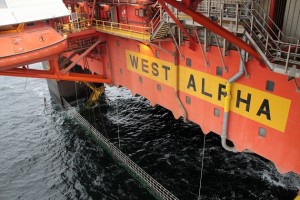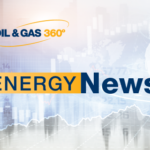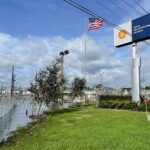Sources inside the company have confirmed that Rosneft will not be able to move forward in the Arctic for at least a year due to sanctions.
State-owned energy giant Rosneft (ticker: RNFTF) will not be able to continue drilling in the Kara Sea in 2015 after Western sanctions halted its cooperation with ExxonMobil (ticker: XOM) in the arctic, two company sources told Reuters.
In September, Rosneft announced that it had found oil in the Kara Sea after drilling the Universitetskaya-1 well in partnership with Exxon. The Kara Sea resources are estimated to be comparable in size to those found in Saudi Arabia, and were hoped to keep Russian production growing after setting a post-Soviet record in 2014.
Rosneft was due to restart drilling this year but Exxon was forced to back out of the venture after sanctions from the West made it impossible for XOM to continue cooperating with the Russian company. Sanctions prevent Western firms from helping certain Russian companies, including Rosneft, to explore in the Arctic, in deep water or for shale oil, among other restrictions.
“There will be no drilling in 2015. There is no platform and it is too late to get one. The project was initially created for Exxon’s platform,” a Rosneft source told Reuters. A second source inside the company said that Rosneft planned to resume drilling in 2016, but commercial production would now be pushed back to beyond 2020.
“Usually, it takes eight to ten years from the first well to the first oil on the offshore, but here you have such a difficult situation,” the source said.

Rosneft was using the West Alpha platform, owned by Seadrill subsidiary North Atlantic Drilling (ticker: NADL), in the Kara Sea. The rig is on contract with Exxon until July 2016, and returned to Norway in mid-October after completing the well in the Kara Sea. Due to the weather conditions, drilling in the Kara Sea can only be conducted during a couple months in the year.
The first source said roughly a year and a half was needed to adjust the Kara Sea project for a new platform so in order to start drilling in July-August next year, Rosneft would need to start looking for a platform now.
Valery Nesterov, an analyst with Sberbank CIB, said the main challenge would not be to find a platform, but to address the safety of operations in an area where Russia lacks expertise.
Russian Energy Minister says country’s output will stay at 2014 level
The news comes on the same day that Alexander Novak, Russian Energy Minister, announced that Russian oil output will remain at the same level as in 2014. The inability to access resources in the Kara Sea for another year is going to continue to put strain on Russia’s oil and gas industry, which is already struggling to replace its rapidly depleting reserves from Soviet-era oil fields.
Important disclosures: The information provided herein is believed to be reliable; however, EnerCom, Inc. makes no representation or warranty as to its completeness or accuracy. EnerCom’s conclusions are based upon information gathered from sources deemed to be reliable. This note is not intended as an offer or solicitation for the purchase or sale of any security or financial instrument of any company mentioned in this note. This note was prepared for general circulation and does not provide investment recommendations specific to individual investors. All readers of the note must make their own investment decisions based upon their specific investment objectives and financial situation utilizing their own financial advisors as they deem necessary. Investors should consider a company’s entire financial and operational structure in making any investment decisions. Past performance of any company discussed in this note should not be taken as an indication or guarantee of future results. EnerCom is a multi-disciplined management consulting services firm that regularly intends to seek business, or currently may be undertaking business, with companies covered on Oil & Gas 360®, and thereby seeks to receive compensation from these companies for its services. In addition, EnerCom, or its principals or employees, may have an economic interest in any of these companies. As a result, readers of EnerCom’s Oil & Gas 360® should be aware that the firm may have a conflict of interest that could affect the objectivity of this note. The company or companies covered in this note did not review the note prior to publication. EnerCom, or its principals or employees, may have an economic interest in any of the companies covered in this report or on Oil & Gas 360®. As a result, readers of EnerCom’s reports or Oil & Gas 360® should be aware that the firm may have a conflict of interest that could affect the objectivity of this report.







